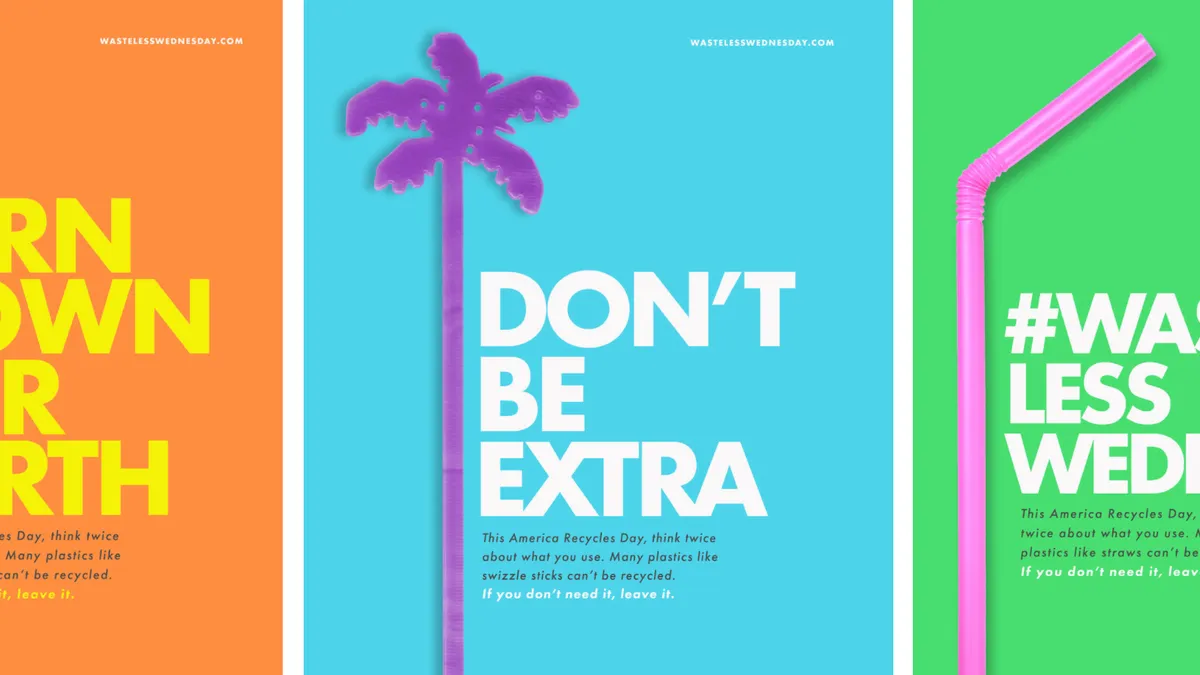Dive Brief:
- EnviroMedia, the original creators of America Recycles Day, recently launched a new consumer-facing social media campaign that encourages waste reduction and recycling. #WasteLessWednesday will target a different product or idea each week, according to CEO Valerie Salinas-Davis. In an interview, Salinas-Davis said she wants this to be "something simple that can serve as a platform for anyone who gives a damn about waste reduction and recycling."
- In its first iteration, the campaign targeted plastic utensils, plastic straws and swizzle sticks, urging consumers to avoid the products when possible. Salinas-Davis said the campaign would be targeting paper napkins this week.
- Salinas-Davis sees access to curbside recycling and awareness of what can and can't be recycled as two big barriers to increasing diversion in the U.S., where the overall recycling rate has stagnated around 34% in recent years.
Dive Insight:
There are plenty of marketing and education campaigns aimed at increasing diversion, raising awareness of recycling contamination and overall waste reduction. However, many of these consumer-facing campaigns are limited in scope, be it by geography (like a city-specific campaign) or timing (if it's an event like America Recycles Day, which comes only once a year). These campaigns often focus more on recycling and less on the act of reducing consumption in the first place, even if that material is eventually recycled.
"What we like about #WasteLessWednesday is, rather than an annual recycling awareness day — which is great — [we can] use it as a way to continue the discussion about 'reduce, reuse, recycle' every week of the year," Salinas-Davis said.
An online campaign, like this one, isn't limited by geography. And, by making it a weekly conversation, EnviroMedia is increasing the likelihood that more people will see the message. Having different themes each week can also keep the conversation relevant to new developments around packaging design or regulation, as more cities look at ways to change their resident's disposal habits.
The new campaign is also mobile-focused. This could help the campaign reach millennials, a growing demographic. Surveys have shown that millennials don't recycle as much as other age groups and, in some cases, are skeptical that recycling works at all.
Reaching millennials is going to be increasingly important for waste companies and local governments if recycling and diversion rates are to continue to improve. Millennials are starting to reach leadership positions in their governments, workplaces and communities, so making sure they're properly educated about waste reduction and recycling could go a long way in improving diversion.














